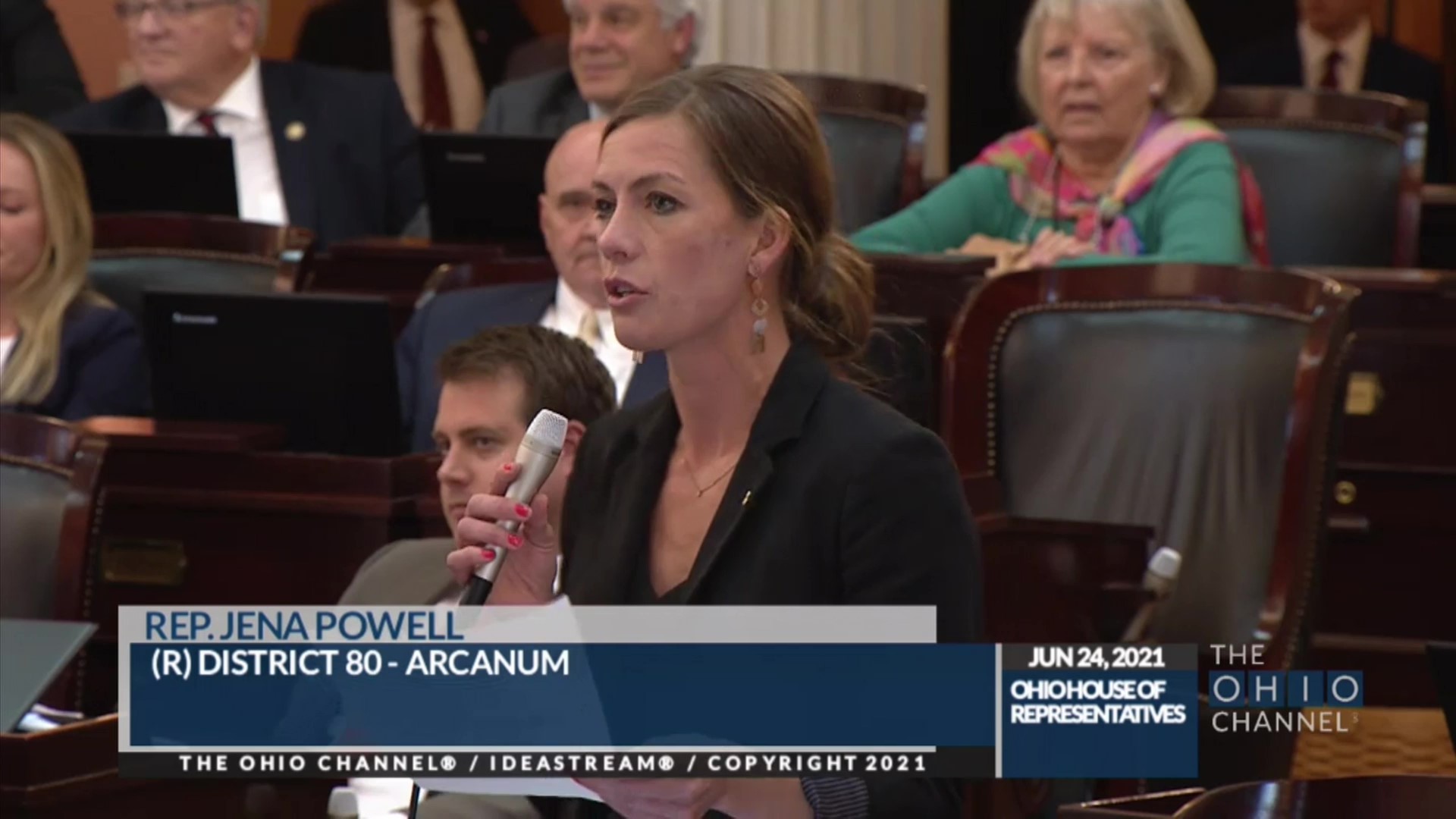On Thursday, June 24, the Ohio House of Representatives met to vote on a bill that would allow NCAA athletes to earn money for their name, image, and likeness or NIL for short. Moments before the bill was about to pass Republican Jenna Powell proposed an amendment to the bill that would prevent and ban transgender girls from playing in high school sports.
Powell has been trying for approximately two years to get this bill passed.
The “Save Women’s Sport Act” makes sure that male athletes play on men’s teams while female athletes play on women’s teams, all according to the biological sex or assigned gender at birth.
Ohio isn’t the first state to introduce and pass bills banning transgender girls from playing high school and/or college sports. There are approximately 26 other states with bills like Ohio’s, which all state that a person must prove their gender if questioned, and 22 bills ban transgender girls from female teams.
Idaho is one of the states that has passed a bill banning transgender and intersex girls from competing in women’s sports at all levels.
“Bills like Idaho’s fail to recognize the diversity within the transgender female population. They also fail to understand the biology of puberty and where we are presently in terms of treatment, specifically with puberty blockers,” said Dr. Vinny Chulani, Director of the Phoenix Children’s Hospital Adolescent Medicine Program, a practitioner in the field of LGBTQ+ care and an advocate for trans and gender-nonconforming youth rights.
The more states that are passing these bills it makes people wonder if this is really about “saving women’s sports” or just transphobia.
In 2019, the United States Women’s National Team for soccer started their fight for equal treatment and pay between them and the Men’s National Team. Since, then they have been to court to state their claims, won the SheBelieves Cup for the third year in a row, won their International Friendlies three years in a row, qualified for the Olympics, and won one more Fifa Cup making that their fourth win with an overall Fifa ranking of first place.
Looking at the statistics between the male team and the female team, it is clear that women perform better on the field, and the men’s team agreed to the point that they started to rally to help them get their equal pay.
This isn’t the only women’s team that has gotten unequal treatment.
Just this year the NCAA was in trouble for unequal treatment between the men’s and women’s teams during March Madness.
Women’s teams in America have always been overlooked, so why are states now suddenly interested in women’s sports when these teams have undergone unequal treatment and a lack of recognition for years, no matter how many times they prove themselves?
Powell’s amendment bill “Save Women’s Sports Act” and other acts like it are popping up across the country, so is this bill really about “saving women’s sports” or something more than that?
The original NIL bill would pass with a 57-36 vote, and Powell’s amendment bill titled “Save Women’s Sports Act” would pass 54-40.
Harley Johnson
Managing Editor


